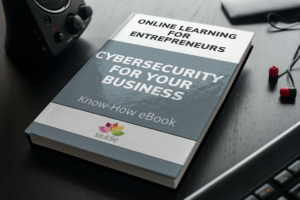Protecting your computer is a must in today's society.
Technological advances in computing are a double-edged sword. On the one hand, they allow us quick and easy access to a variety of conveniences such as bank statements, preferred shopping centres, school and health information and much more.
On the other hand, the same access can also be granted to people who should not have it. Hacking has become the biggest criminal nuisance in computer history, although it is very rare. There is no denying it. The hacker is not the least bit nice or innocent. Today's hackers are not the pimply-faced teenage rebels you may have imagined. Instead, this generation of hackers is made up of adults who make a profession out of stealing the identities of law-abiding citizens and then selling those identities to others who want to circumvent the system. And the best way to avoid these dodgy characters is to avoid them in the first place.
Computer security has never been more important, and that's why we've taken the trouble to explain it to you. By making your computer as hacker-proof as possible, you can reduce your risk of becoming a victim of identity theft. All you need is a little software and a bit of common sense.
1. make sure you have an anti-virus and anti-spyware programme installed. When you surf the Internet, antivirus/antispyware software prevents malicious programs from being downloaded and installed on your computer. This dangerous code, often referred to as viruses, worms or spyware, can destroy important files and use your computer for a single purpose: forwarding sensitive data to an identity thief's server.
2 Above all, do not save any sensitive data on your computer. If your computer is infected with a virus, worm or spyware, you can stop the perpetrators by not saving your personal data on your computer. If your computer stores data, it is not valuable data. Full names, national insurance numbers, phone numbers, home addresses, work information and credit card numbers are all prey for hackers. If this data is not stored on your computer, all you need to worry about is restoring your computer to a virus-free state.
3. scan all files with an antivirus/antispyware programme before opening them. It used to be recommended not to open files from people you don't know. Now it is no longer safe to open files from friends without checking them first. Because that's how viruses spread - via files, even if it's by accident. So even if you've received an amusing video from a colleague, it's no safer to open it than a film you've received from a stranger. To be on the safe side, you should check every file you download from the internet or receive by email, no matter where it comes from.
4. protect your PC from prying eyes by erecting a barrier. Anti-virus and anti-spyware software is only used when something has already happened. Installing a firewall can help,Prevent identity theft. A firewall is software that scans all data entering and leaving a computer and blocks anything that does not meet certain security requirements (user-defined rules).
5. do not click on links in spam messages that lead to websites. Some spammers will send you an email asking you to click on a link to collect personal information. The emails are often disguised as important notifications from well-known online companies and try to trick their recipients into clicking on links with the threat of deleting their account. Sometimes the links are innocent and attempt to trick the reader into providing personal information (e.g. a credit card number), while in other cases they attempt to download malicious malware onto the computer.
Your knowledge is your best defence against digital crime. We hope that the above advice will prompt you to take the necessary steps and protect your computer with the recommended tools. Not only will you protect yourself, but you will also prevent the spread of these malicious activities and protect others.

